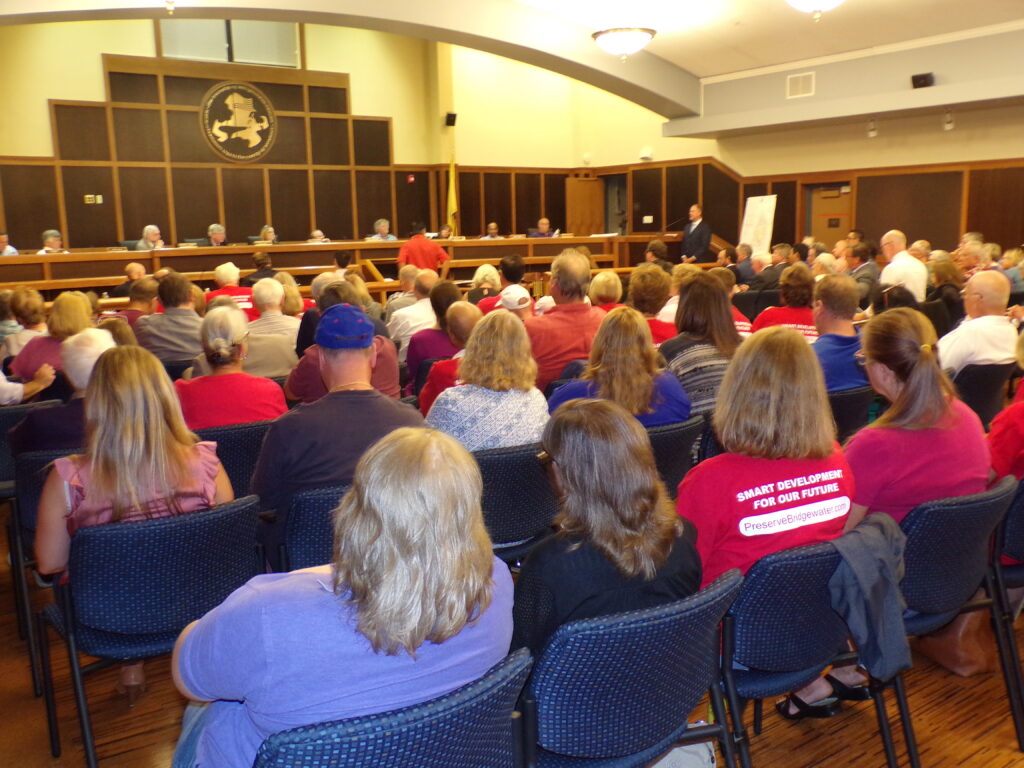BRIDGEWATER TOWNSHIP MUNICIPAL DEMOCRATIC COMMITTEE STATEMENT IN OPPOSITION TO PROPOSED ORDINANCES “11A” and “11B”

BRIDGEWATER TOWNSHIP MUNICIPAL DEMOCRATIC COMMITTEE
STATEMENT IN OPPOSITION TO
PROPOSED ORDINANCES “11A” and “11B” PROHIBITING THE LOCATION OF
LEGAL MARIJUANA-RELATED BUSINESSES IN BRIDGEWATER TOWNSHIP
On November 3, 2020, the voters of New Jersey approved the legalization of marijuana under appropriate regulations, by a vote of 67% to 33%. The voters of Bridgewater supported this action by a similar vote of 61% to 39% and yet, with vague references to “quality of life” and “potential negative impacts”, our elected officials have introduced ordinances that would declare our township off-limits to marijuana dispensaries and businesses devoted to the cultivation, manufacturing, packaging, distribution and delivery of this legal product. The Bridgewater Township Municipal Democratic Committee believes these proposed ordinances, identified on the March 18, 2021 Township Council agenda as ordinances “11A” and “11B”, are unnecessary, are not desired by the people of Bridgewater and would create an economic and financial detriment to our community. We therefore call on the Bridgewater Township Council to reject these two ordinances.
The committee wishes to make clear that it is not taking a position on two other proposed ordinances, identified as “11C” and “11D”, that would prohibit use of marijuana on public property or at public events. The committee accepts the concept that marijuana should be treated the same as alcohol and tobacco from a standpoint of public use. While some of our members may question whether ordinances “11C” and “11D” actually treat these substances equally, our focus is on the council’s extraordinary and completely unjustified move to ban businesses that deal in a legal project. The ordinances that would do so are identified as “11A” and “11B” and we strongly oppose their adoption.
These ordinances infringe on the freedom of Bridgewater residents to engage in and patronize a lawful business, with no benefit to the community. At the March 18 meeting where these ordinances were introduced, the council members could offer only very vague and insubstantial reasons for banning these businesses. In fact, most of the discussion focused on the reasons to ban public use, with no solid reasons given for preventing retail dispensaries, warehousing businesses, processing facilities or the like. In Bridgewater we have a thriving business environment, including extensive retail space as well as industrial facilities. We can anticipate that in addition to dispensaries themselves, businesses involving the packaging, warehousing and distribution of this legal product would choose to locate here. We are confident that as a result of state regulations and local zoning control, Bridgewater would become the home of a limited number of these businesses, located in the appropriate places in our township. No
good reasons have been offered for prohibiting these facilities from joining the active business
environment here in Bridgewater.
On the other hand, the economic benefits of permitting these legal businesses to operate in Bridgewater are clear. At the March 18 meeting our elected officials suggested that the revenues to the township would be capped at 2% of the revenues of marijuana sales in Bridgewater. At best, this is highly misleading. The 2% refers to a sales tax that a municipality would be able to impose on sales of marijuana product, similar to the hotel room tax that is currently paid by places of lodging in the township. However, any marijuana business, like any business, would also be a property tax ratable. The township is always seeking tax ratables which, all other things being equal, relieve the property tax burden that is carried by homeowners. Additionally, it is possible that the township could receive revenue from the sale of licenses for retail marijuana establishments, just as they do now for places that sell alcoholic beverages. The most recent sale of a retail liquor license, on December 29, 2020, resulted in payment to the township of more than $650,000. As for the 2% sales tax itself, the City of Paterson recently received its first check for a medical marijuana facility there, which is also subject to a 2% tax.
Officials there had anticipated receiving approximately $10,000.00 per month in sales tax revenues. Instead, based on the volume of sales, the actual payment received amounted to $25,000.00 per month. While the circumstances in each community are different, it is clear that the revenues from marijuana businesses would far exceed any costs involved in policing or regulating them. These funds could be used for any municipal purpose, but we believe most residents would like them to go toward priorities like road maintenance and seasonal costs such as snow removal. Marijuana businesses would produce
revenues that would benefit our township and its residents, but none of these financial benefits will
be realized if proposed ordinances “11A” and “11B” are adopted.
Also of concern is the rapid and rushed manner in which this ordinance is being proposed and considered by the Council. The state of New Jersey has afforded all municipalities 180 days, from the effective date of the state legislation on February 22, 2021, to determine whether to prohibit dispensaries and other marijuana-related businesses. That time expires in late August.
The 180-day period allows time for the governing body to conduct hearings, invite extended public comment and input, and to give the issue thoughtful consideration after hearing from the public.
These ordinances represent an extraordinary and perhaps unprecedented action in the annals of
Bridgewater Township Government: The banning of sales of a legal substance. In such a
situation, more than the bare minimum of public input is required. Yet, the bare minimum is
apparently all we shall receive. These ordinances were introduced less than 30 days after the state
legislation took effect, at the March 18 meeting, with final adoption scheduled for 18 days later,
April 5. Those 18 days include three weekends as well as Passover, Good Friday, Easter and the
Hindu holiday of Holi. While this schedule technically complies with the time requirements for
adoption of an ordinance, it is clearly not in the spirit of allowing the public sufficient time to study
these ordinances, consider the issues and provide meaningful public input. The effort by the mayor
and council to rush through an ill-considered ordinance, without an adequate opportunity for public
input, is one more thing they will have to answer for.
Regardless of when a final vote may take place, these ordinances do not benefit our community, impose unnecessary and costly restrictions on our citizens and business community, and should be rejected.







